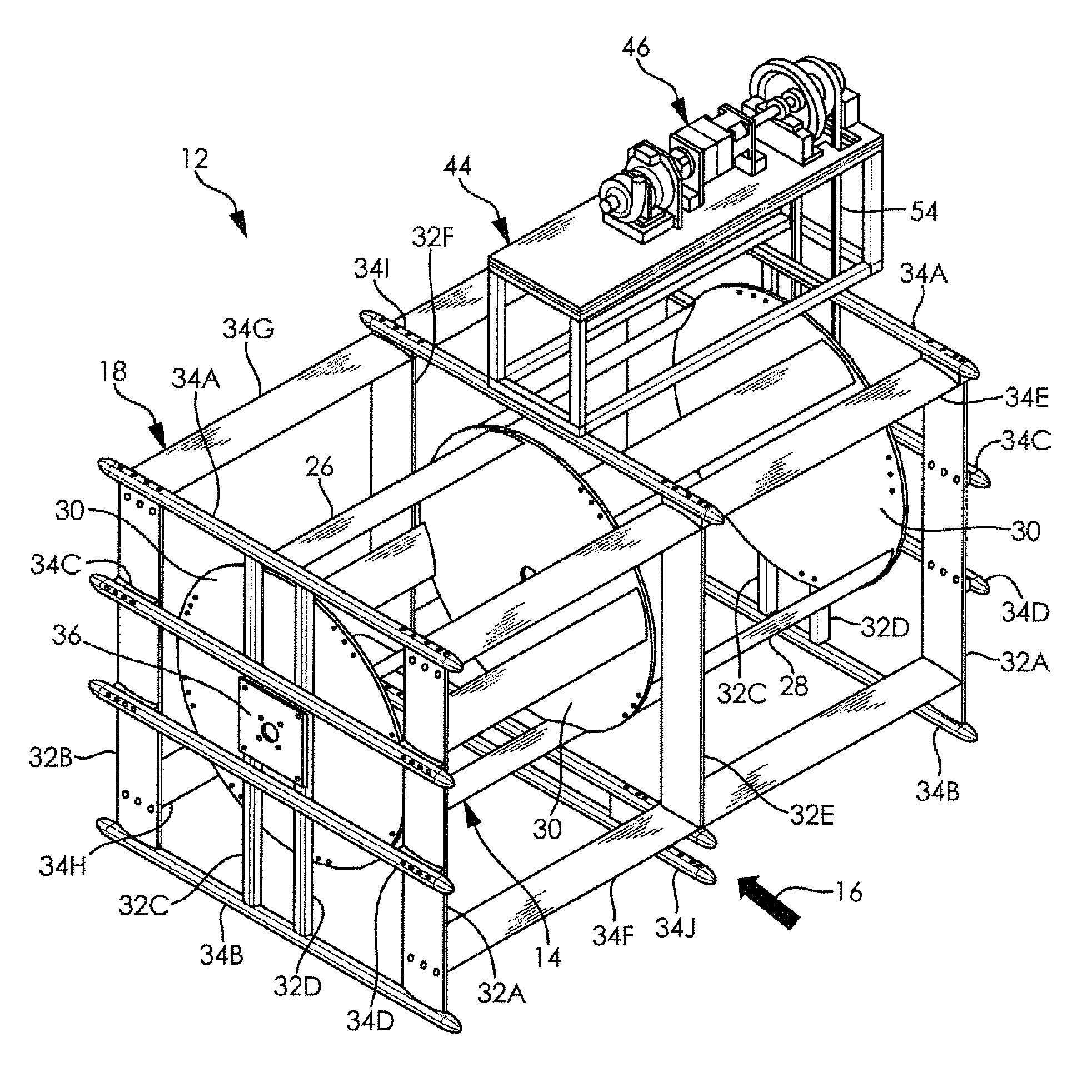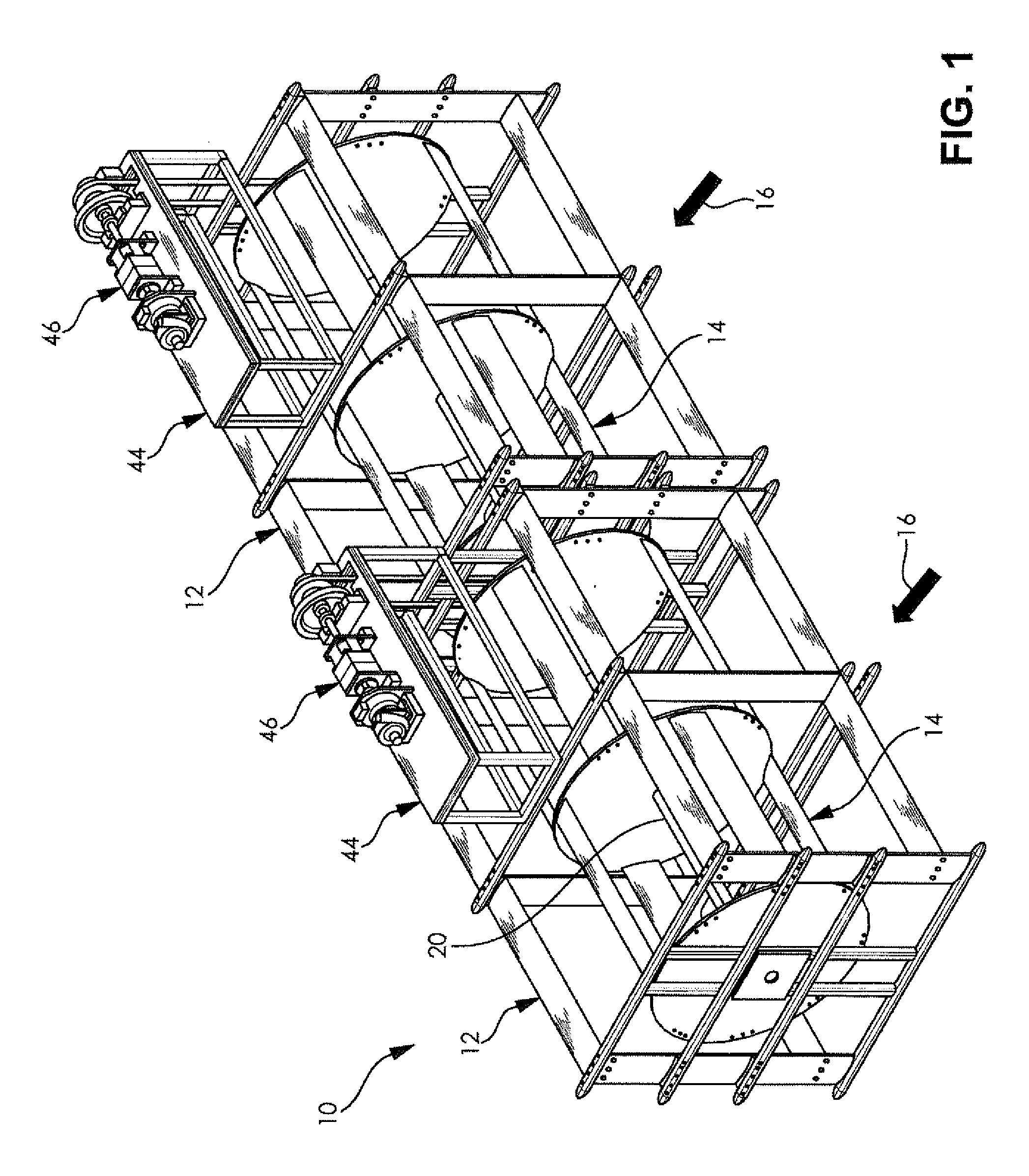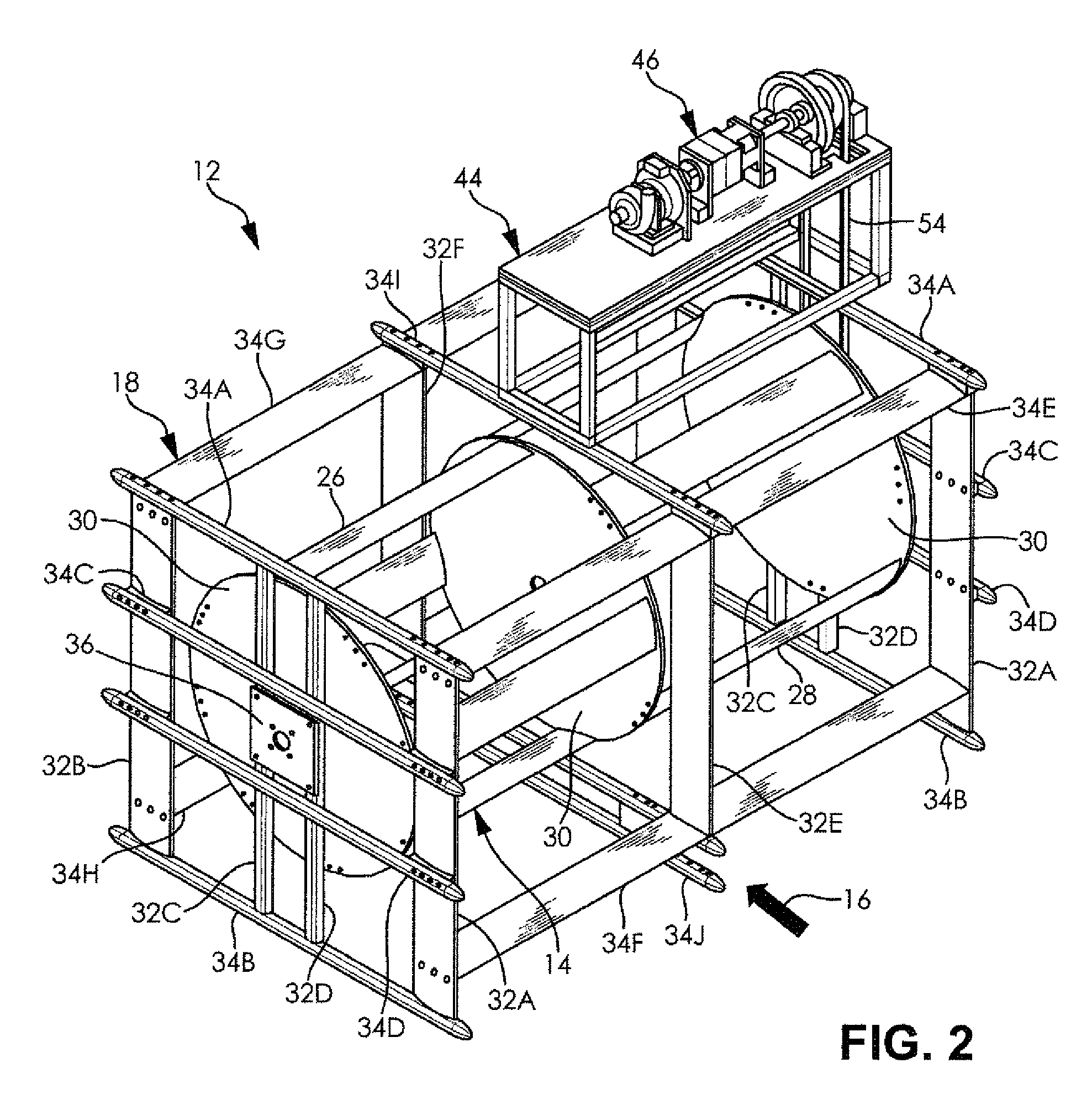Horizontal-axis hydrokinetic water turbine system
a horizontal-axis, hydrokinetic technology, applied in the direction of electric generator control, vessel construction, marine propulsion, etc., can solve the problems of high energy extraction efficiency, difficult transportation and installation, and low cost effectiveness of commercially available water turbine systems, so as to reduce weight and waterway disturbance, increase buoyancy and efficiency, and reduce weight
- Summary
- Abstract
- Description
- Claims
- Application Information
AI Technical Summary
Benefits of technology
Problems solved by technology
Method used
Image
Examples
Embodiment Construction
[0029]It will be apparent to those skilled in the art, that is, to those who have knowledge or experience in this area of technology, that many uses and design variations are possible for the improved hydrokinetic water turbine systems disclosed herein. The following detailed discussion of various alternative embodiments will illustrate the general principles of the invention. Other embodiments suitable for other applications will be apparent to those skilled in the art given the benefit of this disclosure.
[0030]FIG. 1 illustrates a horizontal-axis hydrokinetic water turbine system 10 configured to be placed in a flowing stream of water according to one embodiment of the present invention. The illustrated hydrokinetic water turbine system 10 includes two water turbine assemblies 12 each having a horizontal axis water wheel or rotor 14 but it is noted that the hydrokinetic system 10 can alternatively have any other quantity of water turbine assemblies 12. The illustrated first and se...
PUM
 Login to View More
Login to View More Abstract
Description
Claims
Application Information
 Login to View More
Login to View More - R&D
- Intellectual Property
- Life Sciences
- Materials
- Tech Scout
- Unparalleled Data Quality
- Higher Quality Content
- 60% Fewer Hallucinations
Browse by: Latest US Patents, China's latest patents, Technical Efficacy Thesaurus, Application Domain, Technology Topic, Popular Technical Reports.
© 2025 PatSnap. All rights reserved.Legal|Privacy policy|Modern Slavery Act Transparency Statement|Sitemap|About US| Contact US: help@patsnap.com



